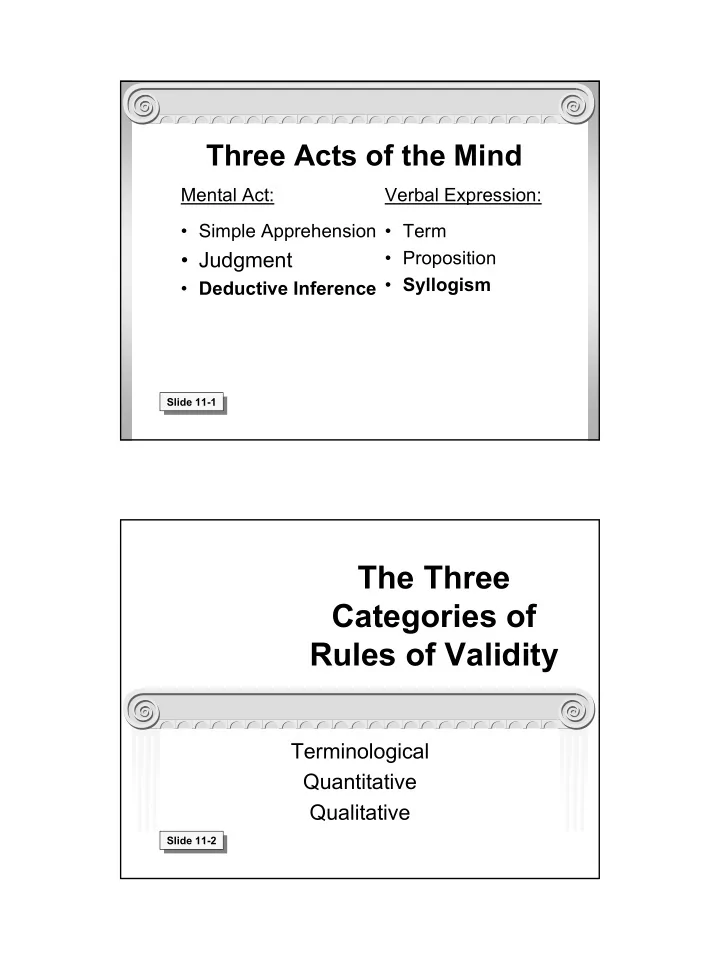

Three Acts of the Mind Mental Act: Verbal Expression: • Simple Apprehension • Term • Proposition • Judgment • Syllogism • Deductive Inference Slide 11-1 The Three Categories of Rules of Validity Terminological Quantitative Qualitative Slide 11-2 1
Terminological Rules of Validity There must be three and only I. three terms. II. The Middle Term must not occur in the conclusion. Slide 11-3 Quantitative Rules of Validity III. If a term is distributed in the conclusion, then it must be distributed in the premises. VI. The middle term must be Slide 11-4 distributed at least once. 2
Qualitative Rules of Validity V. No conclusion can follow from two negative premises. VI. If the two premises are affirmative, the conclusion must also be affirmative. VII. If either premise is negative, the conclusion must be negative. Slide 11-5 Terminological Rules of Validity There must be I. three and only three terms. The Middle Term II. must not occur in the conclusion Slide 11-3 3
Terminological Rules Rules I and II are terminological rules because they have specifically to do with the terms in the syllogism. Slide 11-6 Rule I: There must be three and only three terms A syllogism must have three terms a major, minor and middle term. Each one will appear twice in the syllogism. Slide 11-7 4
The Fallacy of Four Terms The Fallacy of Four Terms occurs when there are more than three clearly distinguishable terms. Slide 11-8 The Fallacy of Four Terms All mammals have hair All horses have manes Therefore, some horses have hair Slide 11-9 5
The fallacy fixed All mammals have hair All horses are mammals Therefore, some horses have hair Slide 11-10 The Fallacy of Equivocation The Fallacy of Equivocation occurs when there is an ambiguous middle term. It also results in more than three terms, but the additional term usually looks the same as one of the other terms. Slide 11-11 6
The Fallacy of Equivocation All planes are two-dimensional All 747s are planes Therefore, all 747s are two-dimensional Slide 11-12 The Fallacy of Equivocation All planes are two-dimensional All 747s are planes Therefore, all 747s are two-dimensional Slide 11-13 7
The Fallacy of Equivocation (Example II) Mortal is not a three-letter word Man is a three-letter word Therefore, no man is mortal Slide 11-14 Terminological Rules of Validity There must be I. three and only three terms. The Middle Term II. must be distributed at least once. Slide 11-15 8
Rule II: The middle term must not occur in the conclusion All plants are living things All animals are living things Therefore, all living things are plants or animals Slide 11-16 Terminological Rules of Validity There must be three and only I. three terms. 1. The Fallacy of Four Terms 2. The Fallacy of Equivocation II. The Middle Term must be distributed at least once. Slide 11-17 9
Recommend
More recommend